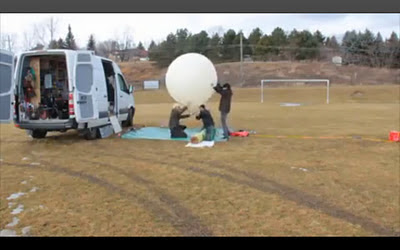Dear Engineering Students,
Happy New Year!
I'm away from class this week. Have no fear! We have some great content lined up for you to continue expanding your horizons as Creative Problem Solvers. The goal of sharing this material, as is the over-arching goal of the CHS engineering experience, is to broaden your view of the world and help you identify something you'd be passionate about pursuing beyond high school.
1) Please support our substitute instructor in their efforts to manage your experience. Being a good host is a positive life skill worth practicing.
2) We have some great video content to experience this week. During your period, please set up a class laptop with the projector to watch the videos specified for your class. Please feel free to use the powered speakers if that makes for a better viewing experience. If there should be a problem with the projector, students may watch the videos individually on their own machine. Otherwise, I expect that students are paying attention to the class video and not their own computer.
2nd and 4th Periods: Principles of Engineering
A number of you have seen the "Making Stuff" videos from last year so we're going to save those for a rainy day and move on to some other topics that tie in with our curriculum.
Block Day:
Engineering Ground Zero - We're going to engineer some structural designs in the coming weeks so this video sets a grand context for that work.
Power Surge - A further exploration of the topics of Energy and Energy Sources.
Thursday:
The Car of the Future - What is the best solution to our automobile crisis?
Friday:
The Smartest Machine on Earth - The core of the 2nd Semester experience is our exploration of programming and robotics. This video showcases the cutting edge of "intelligence" created through programming.
Each video post may have some questions associated with it. Please answer these questions and be prepared to discuss them next week. These are worth points.
Prioritize to get through The Smartest Machine on Earth and Engineering Ground Zero since these directly relate to forthcoming work. Cut either of the other two short if you need to.
3rd Period: Engineering Projects
You may choose to continue work on your current Engineering Project. That said, please consider watching the videos listed above for the Principles of Engineering course(the AI episode is excellent. Many of you will spend quite a few more years learning and this program makes a powerful case for experiential learning (you've heard me mention "empirical scepticism" more than a few times, correct?).
Bonus points if you can orchestrate watching the videos in class (either exclusively or while you work).
As far as your projects go, we need to start wrapping these up for the Semester so that we can get lined up to work on new material in the new semester. Our first efforts will involve using the Arduino microprocessors. Please get a hold of an Arduino if that's a possibility for you.
5th and 6th Periods: Engineering Design
Get ready for the awesome "Making Stuff" series. There are four episodes, each approximately an hour long. You will watch them in series, starting with two on block day, one on Thursday and one on Friday.
As you watch the videos, I want you to develop the following for each one:
- Create an essential question related to the video.
- Provide an answer to your essential question.
- Justify why your essential question is awesome in the context of the video (explain how your question cuts to the heart of the theme and is better than other possibilities you considered).
These questions are a chance for you to directly contribute to the development of the CHS Engineering program. I will use great essential questions to support these videos in next year's courses.
An Essential Question is an inquiry, so making one is like the game show Jeopardy where your answer is in the form of a question. (Make sure your questions are "open-ended" ("How?", "Why?", etc.) rather than simple "yes or no" or "number trivia" ("How Many"))
We will review your work next week. These are worth points.
Click here to watch the "Making Stuff" episodes!Enjoy! Looking forward to seeing you all on the 9th :)
Mr. Olson
















